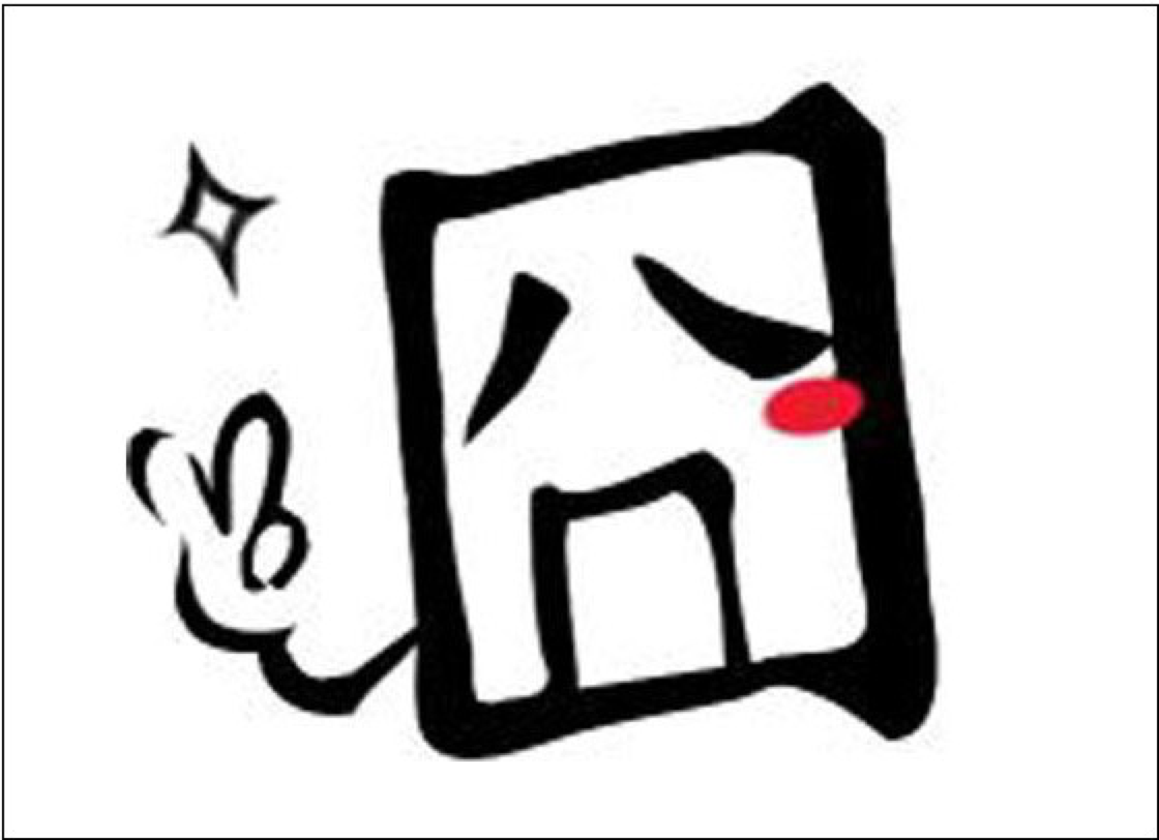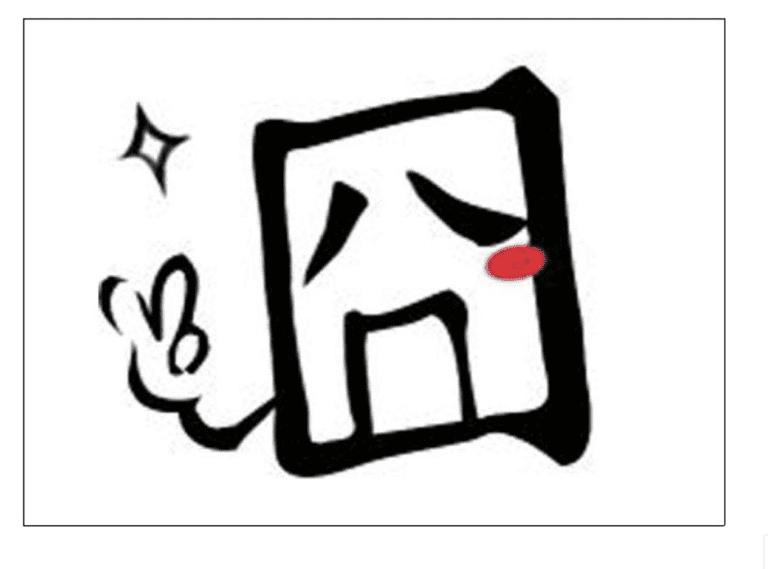
-
1 囧 (jiǒng)
Yes, this is an actual Chinese character, not an emoticon. It was little known and meant a “patterned window”. But since 2008, the character has become an internet phenomenon. Now it is commonly used in awkward or shocking situations. The character even made its way into mainstream culture. The comedy filmLost in Thailand (泰囧) was the best-sold movie of all time in China when it was released in 2012.

e.g. Five awkward moments of Golden State Warriors!
-
2 兲 (tiān)
This character has been used on the internet as an abbreviation for “王八”, or a softshell turtle, which is an insult in Chinese. It is often used between close friends or when you want to make fun of someone. The character is originally a variant form of 天, or sky.

e.g. It’s god’s will! Don’t ask! You’re a turtle if you ask!!!
-
3 烎 (yín)
If you read from top to bottom like you normally would when reading Chinese characters, it says开火, or literally “open fire”. The character originally meant “sunlight”. Since it was adopted by gamers on the internet, it is commonly used to describe someone having a good run. It sometimes also means as it looks: simply “Open fire!”

e.g. Open fire! New Navy frigates fully prepared.
-
4 嫑 (biao)
This character is two characters, 不要(Don’t!),squeezed into one. It has been used in many dialects in China. For example, it is pronounced as “biao” in the Henan dialect and “bao” in Sha’anxi dialect. And the character has won popularity since it was discovered by the gamers. People sometimes use it together with 烎: 嫑烎(Hold your fire!)

e.g. Fat Sen: Don’t bother me when I’m trying to sleep.
-
5 巭 (gū)
This character was actually a Korean Hanja meaning “hard work” or “efforts”. From top to bottom, it reads as 功夫, which not only means “Kung Fu” but also “hard work” in modern Chinese. Nowadays on the internet, it has adopted the meaning of “someone who knows Kung Fu” or “someone who can fight”.

e.g. Does not translate.
-
6 槑 (méi)
槑is a variant of the character 梅, or “plum tree”(I know. They look nothing alike!). It is made of two identical parts and each is a 呆(dāi), meaning “dumb” or “foolish”. And since “love makes people become silly”, this character has been used on the internet to describe two people deeply in love with each other. How sweet!

e.g. Are you s..st..stu…stupiiiiid?



0 Comments